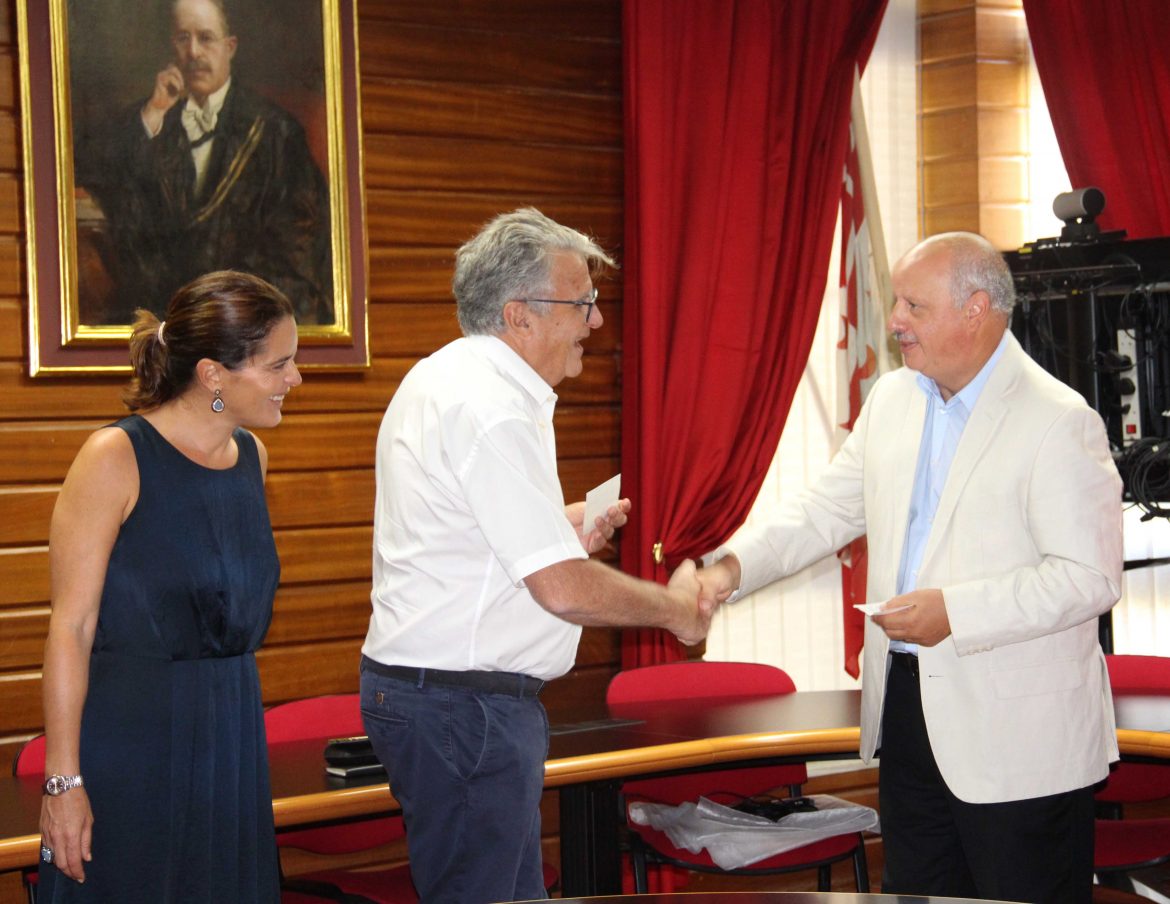
Two University of Malta research projects, one aimed at conservation and heritage and the other aimed at the issue of plastic deterioration, have recently received monetary funding and support from The Gasan Foundation . The Foundation had pledged €50,000, for the conservation of the Matteo Perez D’Aleccio wall paintings at the Grandmasters Palace in Valletta, led by the Department of Conservation and Built Heritage of the Faculty of the Built Environmen. The second project will tackle research for the microbial deterioration of commercially used plastics. The Foundation will be covering the costs of this study to the tune of €11,000. All donations are being made through the Research, Innovation and Development Trust (RIDT) of the University.
Mr Joe Gasan, Chairman of the Gasan Foundation presented the donations to Prof. Alfred Vella, Rector and chairman of the RIDT. Also present on behalf of the Foundation was Ms Sarah Carbonaro, Senior Administrator of the Gasan Foundation and Mr Wilfred Kenely, as CEO represented the trust (RIDT).
During the presentation, scientist Dr Gabrielle Zammit explained that Polyethylene terephthalate (PET) is one of the most common plastics in use worldwide. Recycling rates reach 30% in the US and 50% in the EU. In Malta, the rate is lower, and a considerable amount of the PET is discarded. During its manufacture, small amounts of various additives are used to confer particular properties to the plastic that depend on its end use. Both low and high density polyethylene plastics (LDPE, HPPE) are used commercially in Malta due to the fact that these plastics are cheap and easily processed. Different types of PE are derived from natural gas or crude oil under the right conditions of temperature, pressure and catalysis. Even though, in general, PET and PE plastics are considered resistant to breakdown in the natural environment, recently, a number of microbes have shown promise in degrading these polymers.
This project will also place particular emphasis on PET plastic bottles and disposable PE plastic containers which are commonly used in the Maltese islands. A number of experiments will be conducted to compare the natural deterioration of PET and PE in the soil and marine environments to that carried out by particular microbes in vitro.
These studies will provide an indication of the steps involved in the natural biodeterioration of PET and PE plastics as well as the duration of the whole process in the natural environment. Apart from gaining considerable insight into the deterioration processes of plastics that are disposed of inappropriately in the natural environment, such studies will also lead to the biotechnological application of microbial enzymes and biosurfactants for the accelerated deterioration of PE and PET plastics in the near future.
University of Malta Rector, Prof. Alfred J. Vella, thanked Gasan Foundation for its contribution towards University research and observed that since the setting up of the RIDT in 2011, the University of Malta has been seeing a steady flow of contributions coming from the corporate sector. He augured that other similar organisations will follow on The Gasan Foundation’s steps and provide the much-needed support for the sustainability of the research activity of the University.
